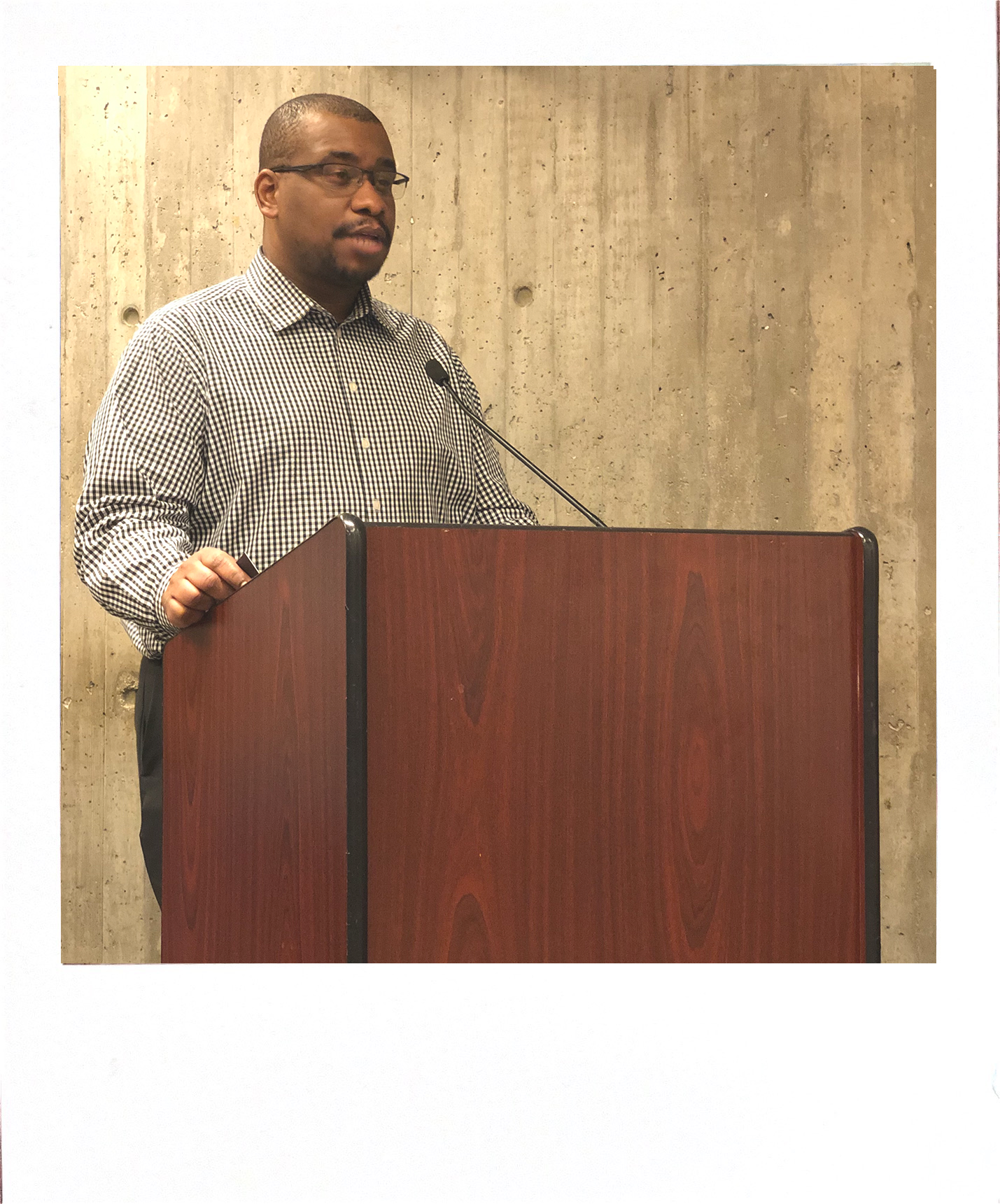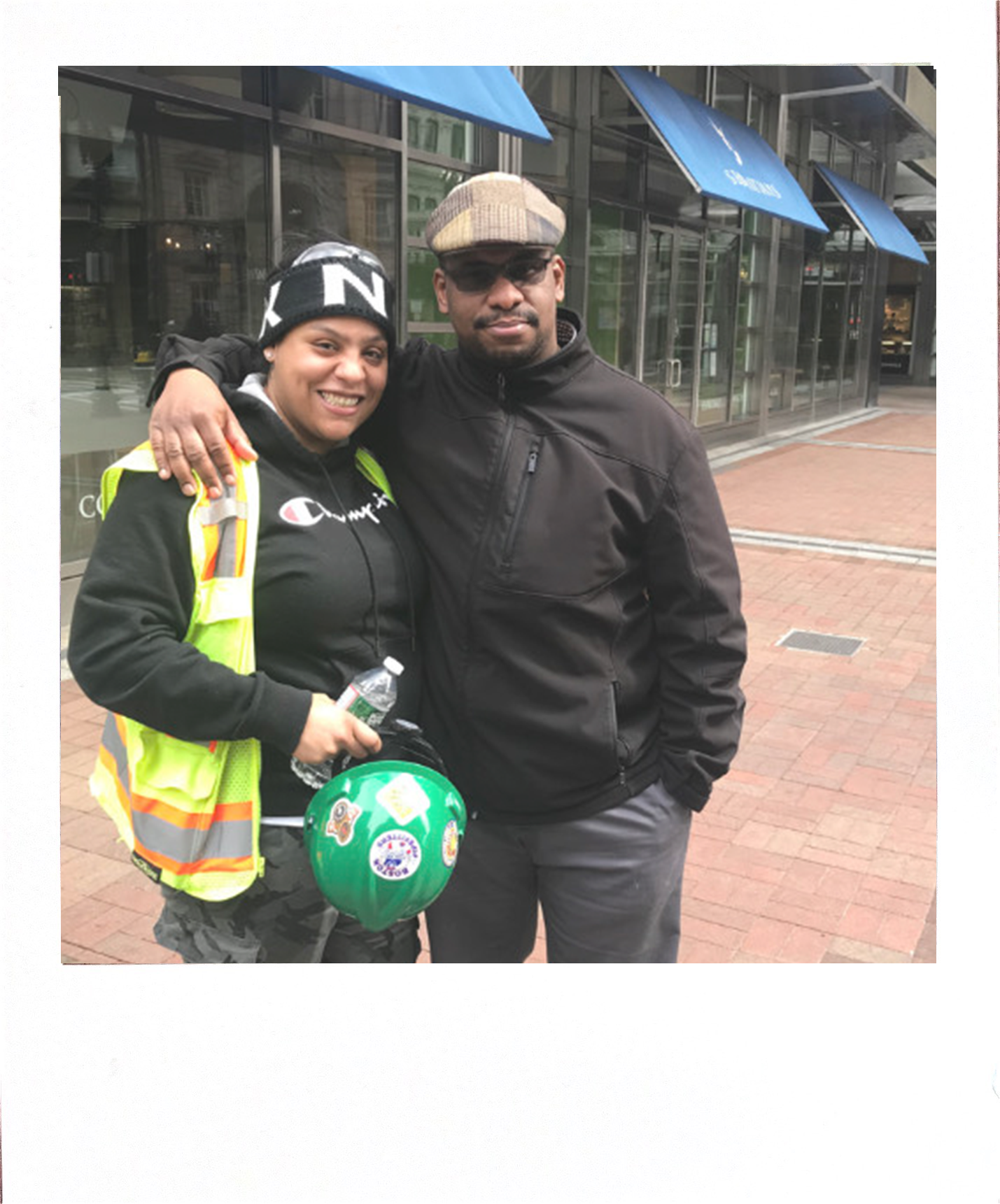COREY ALLEN

Corey J. Allen, born and raised in Mattapan, is a proud investor in the Ujima Fund.
An educator and journalist by trade, and an active citizen by choice, Allen works and volunteers in and around Boston investing in the community he loves.
A graduate of Boston Latin Academy and a double graduate of UMass Boston (B.A. in English Language Arts, Minor in African-American Studies and M. Ed in English Language Arts Instruction), Allen is a strong believer in public institutions for education and business development. In his spare time, Allen serves on the Governing Board of TechBoston Academy (Dorchester), Mattapan Family Service Center Advisory Board, gardening, playing chess and spending time with his family.
An educator and journalist by trade, and an active citizen by choice, Allen works and volunteers in and around Boston investing in the community he loves.
A graduate of Boston Latin Academy and a double graduate of UMass Boston (B.A. in English Language Arts, Minor in African-American Studies and M. Ed in English Language Arts Instruction), Allen is a strong believer in public institutions for education and business development. In his spare time, Allen serves on the Governing Board of TechBoston Academy (Dorchester), Mattapan Family Service Center Advisory Board, gardening, playing chess and spending time with his family.
Tell us about yourself.
I am an active citizen, educator, and journalist from Mattapan. And I want to see Boston a little better by the time I leave this place. And I do my best through my work, volunteering, and investment to make that happen.
Are you an avid investor?
I don't know if I'm an investor, [but] I would say that I try to be [a] conscious investor. So I've invested in real estate. I have multifamily property. Stocks, I own some safety bonds, or, I guess stable bonds if you will. You know, I have a diversified portfolio. I have some real estate investment trusts that I invest in, and then Ujima Fund.
What are you looking for in your investments? How do you decide what to invest in?
I like to invest in a way that creates some capital that I can leave my family when I pass away. When it comes to investment, legacy is very important to me, as well as the social aspect of what I'm investing in. With real estate it's pretty straightforward, right? You invest, and you get returns from [the] appreciation of the property from having rental tenants and any developments around the property that increase the value.
In terms of my stocks, I like to think about companies I have faith in or work on issues that I care about. Particularly for the Ujima Fund, the fact that my contribution will go towards helping individuals from my community that are building their businesses means a lot. That’s a big reason why I decided to invest in the Ujima Fund.

“I learned early on that sometimes the best investment you can make is in people. [...] The Ujima Fund isn’t just a good return on investment, but it also supports the wealth of Boston’s communities of color.”
What does being a young, Black investor mean to you?
My father worked in finance for over twenty years. We used to vacation on Cape Cod, and I remember him watching the news for stock updates. Back in those days, he had to find a payphone to call and execute his trades. So I grew up watching him and eventually started investing through an ETrade account.
It’s been a while since I thought of myself as young, but with the time I have left in my life, I want to leave something behind for my family. I also learned early on that sometimes the best investment you can make is in people. When you have a leader like Nia K. Evans, who has a great track record and reputation, you know that whatever she believes in is going to be a solid investment. The Ujima Fund isn’t just a good return on investment, but it also supports the wealth of Boston’s communities of color.
After the 2020 uprisings, there was a lot of talk about investing in the Black community and Black entrepreneurs. From where you sit, are companies following through on their pledges to invest?
Like anything else, you’ll always have some individuals that are more or less sincere in the pledges they made in the last couple of years. We saw some companies go back to business as usual when racial equity was no longer a hot topic. Ujima is a great antidote to this because the fund is able to invest in businesses by entrepreneurs of color, but also encourage larger institutions to make similar investments. We have to hold companies accountable [for] their commitments. I look forward to seeing the growth of companies that the Ujima Fund invested in.
What would you want to see happen in the future when it comes to broader investments in entrepreneurs of color?
I want to see us go back in time. There used to be well-organized Black ecosystems that didn’t allow the dollar to leave the Black community. There were movie theaters and restaurants owned by Black folks, and these businesses supported each other. Although I do invest in some large firms, I like investing in Black-owned companies as well. And I hope that we go back to that sentiment of Black ownership. We’ve really lost the ability for us to keep dollars in our own community and build that communal wealth. I hope we return to that.
What are you most looking forward to when it comes to the future?
I look forward to seeing my nieces and nephews accomplish all their dreams; whether it’s becoming doctors, athletes, and such. I also look forward to continued good health and making sound investments. Someone once said, “the more you make, the more you give.” So I look forward to continuing to make good strategic investments that create enough income for me to invest in good ventures. When my nieces and nephews reflect on my time, I hope they can say I made a positive impact on their lives, through my writing, investing, or civic activism. I want to leave this world better than I found it.
Any final reflections?
As individuals, we can certainly do good things, but as a collective, we can do more. So I would encourage folks to heed Ujima’s calls for support, whether it’s public banking advocacy, individual donations, or just spreading the good word about what's going on – put actions behind your words.